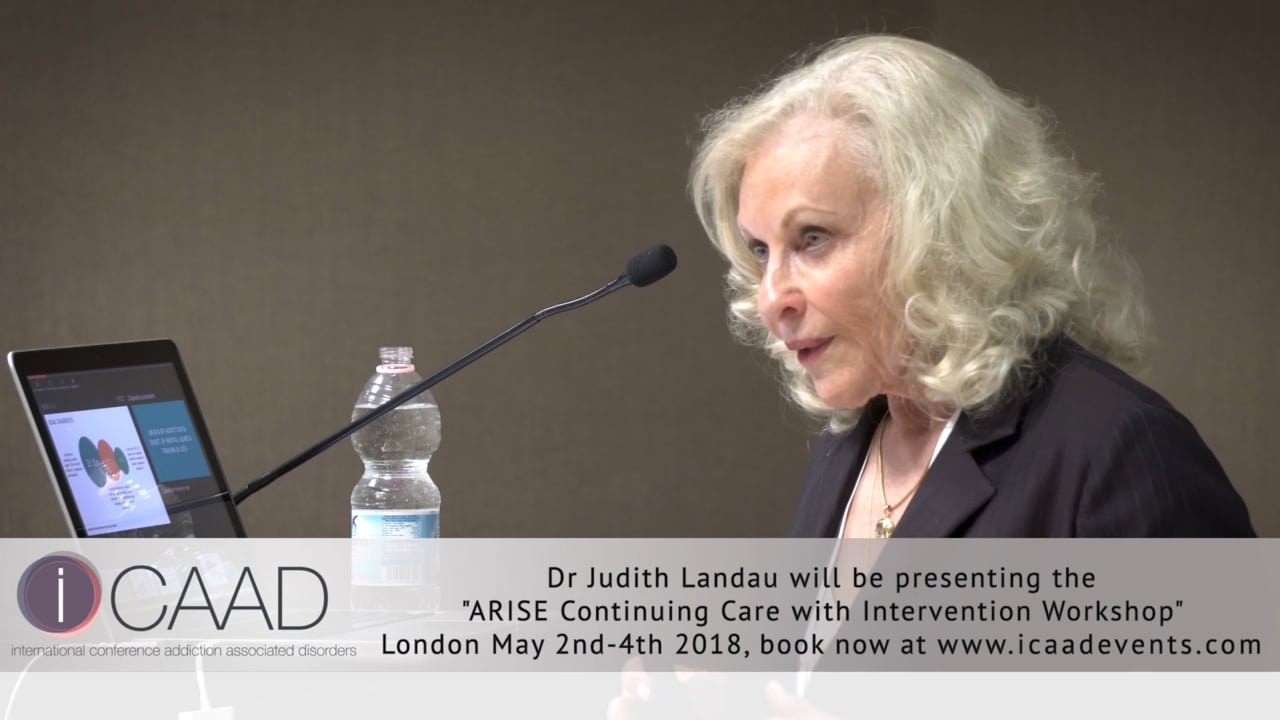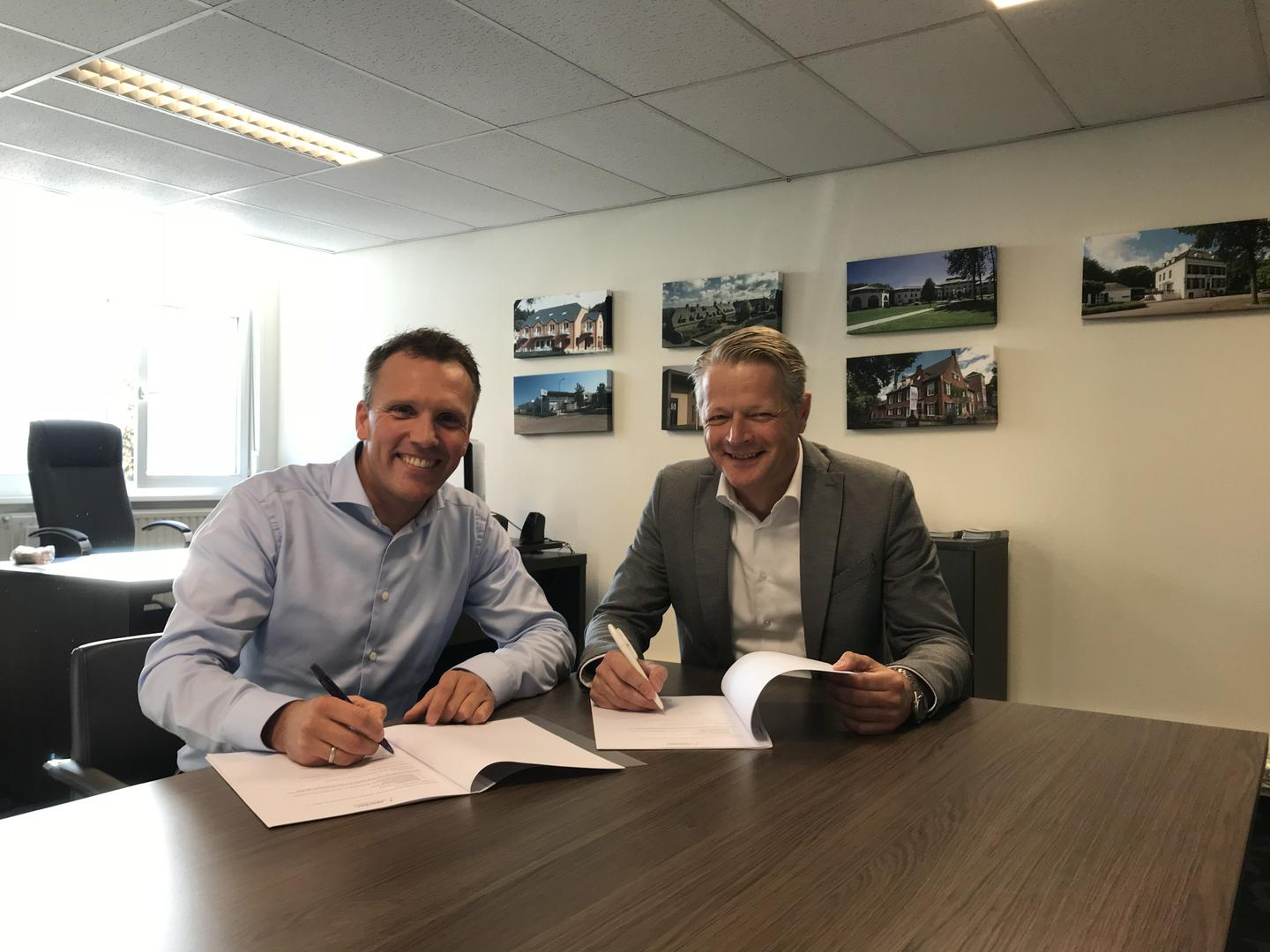Vanaf het volgend voorjaar start de samenwerking tussen Dr. Judith Landau (en ARISE) en Elsden training. Focus van de samenwerking is een verdieping in systemisch werken. Een samenwerking die een verdiepende aanvulling biedt voor behandelaren.
‘We hebben sinds enkele jaren een Naasten Programma Training. Deze is effectief, toepasbaar en inzichtgevend gebleken. Het proces van de naasten staat centraal in dit voornamelijk psycho-educatieve proces. Waar we naar zochten is een verdere verdieping in de daadwerkelijke behandeling van families. Hoe worden ze elkaars bondgenoten weer? In de zoektocht naar een degelijk en toepasbaar evidence based model trof ik steeds Judith als verbinder en vormgever van systemisch werken. Haar vele boeken en publicaties, mondiale werkzaamheden en het opleiden van duizenden therapeuten via ARISE waren me bekend. In haar Transitionele Familie Therapie vond ik aanvulling op wat we tot nu toe gebruiken in systemisch werken. De eerste gespreken met Judith en ARISE boden een snelle aansluiting op elkaars kernwaarden; doen wat nodig is, kwaliteit en EBP leidend laten zijn en ontwikkeling als leidend proces zien. Na het aftasten van elkaars organisatie bleek de match dermate passend dat Judith zelf de samenwerking wil invullen’. (Meino de Vries)
Voor het voorjaar is op 18 19 en 20 maart de eerste training gepland te Almere. In deze drie-daagse training is verdiepend systemisch werken het centrale thema. Naast transitionele familie therapie laten we verschillende en vernieuwende vormen van systemisch werken aansluiten op de huidige werkwijze van de cursisten. We nodigen werkzame professionals uit om deel te nemen aan deze training. De voertaal zal Engels zijn. In het najaar zal het definitieve lesprogramma bekend worden gemaakt. Accreditatie PE wordt aangevraagd.
Who is Judith?
Judith Landau, MD, DPM, LMFT, CFLE, CIP, CAI, CRS, President and CEO of Linking Human Systems, LLC, and ARISE® Network, and President of LINC Foundation, Inc., is a child, family and community neuropsychiatrist. A former professor of psychiatry and family medicine, she has devoted her career to developing Evidence-Based, Best Practice collaborative care family and community systems and resilience models. She enjoys overcoming challenging patient, family, business and community issues, and unraveling complex systems. Dr. Landau has consulted with addiction and mental health treatment centers, mental health professionals, consultants, organizations and interventionists around the world. Former professor of Psychiatry at the University of Pennsylvania, Psychiatry and Family Medicine at the University of Rochester, and Senior Consultant to the Trauma Studies Program at NYU and Columbia, Dr. Landau draws upon 40+ years of research and experience aimed at facilitating long-term healing for addicted individuals and their families.
Based on her extensive research into relational resilience, Dr. Landau developed the Evidence-Based, Best-Practice Transitional Family Therapy, the first integrative model of family therapy. She subsequently developed Evidence-Based interventions at individual, family, and community level (coining the term “community resilience”) based on this model. These include: LINC Community Resilience, ARISE Continuing Care with Intervention, a method for engaging and treating addicted individuals and their families, and LIFE, applied to reducing intimate partner violence, STDs/HIV/AIDS, and addiction in inner city and minority women. She took early retirement from her academic position to apply these methods in the “real world.” She has conducted several dozen country and state-wide community interventions, numerous executive and business interventions, and a few thousand individual and family interventions.
Author and co-author of over 200 peer-reviewed publications and books, she has taught in over 100 countries, and trained several thousand trainers, therapists and interventionists in the models. She has been principle investigator on research conducted through WHO, NIDA and NIAAA, SAMHSA and has consulted to UN, WHO, NIMH, NIDA, NIAAA, SAMHSA, CDC & P, numerous national and international universities, and several international governments including Argentina, South Africa, Hungary, Brazil, Taiwan, all the countries in the former Yugoslavia (most recently Kosovo), Brazil, and to a United States Congressional Committee on the prevention of the consequences of mass disaster.





